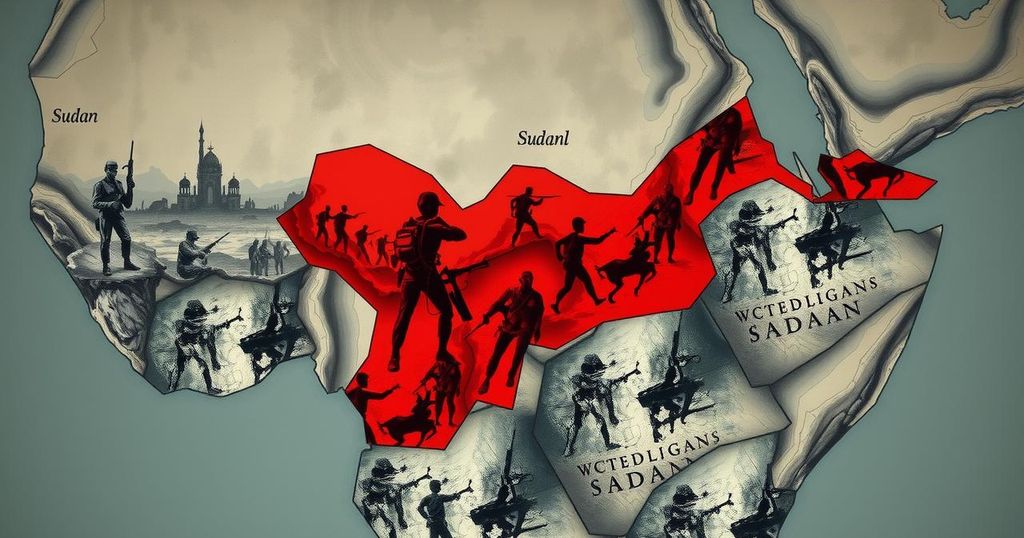Sudan’s Former Prime Minister Hamdok Says Recent Military Gains Won’t End the War
Sudan’s former Prime Minister Abdalla Hamdok has indicated that recent military gains in Khartoum will not resolve the two-year civil war. He dismissed the military’s efforts to form a new government as “fake” and stated that a true resolution requires addressing deep-rooted inequalities and a credible democratic process. The ongoing violence continues to claim lives and displace millions, posing a severe humanitarian crisis.
In a pointed interview, Sudan’s former Prime Minister Abdalla Hamdok criticized the military’s announcement of a new government, calling it a facade. While the military has recently made strides in regaining control of Khartoum and surrounding areas, he believes these victories will not resolve the ongoing civil war that has ravaged the country for nearly two years. According to Hamdok, the conflict has led to the deaths of tens of thousands and displaced millions.
Speaking on the sidelines of the Mo Ibrahim Foundation’s governance conference in Morocco, Hamdok expressed that, “Whether Khartoum is captured or not captured, it’s irrelevant. There is no military solution to this. No side will be able to have outright victory.” Hamdok, who served as Sudan’s first civilian prime minister following decades of military rule, resigned in early 2022 after a coup disrupted his efforts toward democracy.
Sudan is currently grappling with one of the world’s most severe humanitarian crises, as fighting between the Sudanese Army and the paramilitary Rapid Support Forces (RSF) has led to a staggering death toll, estimated at over 24,000, although many observers suspect the actual numbers are higher. The warring factions have been accused of various war crimes, with the RSF linked to horrific acts of genocide and the army to the use of chemical weapons.
The ongoing conflict has forcibly displaced around 13 million people, with approximately 4 million fleeing to neighboring nations amid growing famine and cholera outbreaks. Despite recent military successes claimed by army chief General Abdel-Fattah Burhan and the appointment of a new prime minister in an attempt to establish a new government, fighting persists, particularly as the RSF regains strength in its stronghold of Darfur and continues to advance in Kordofan.
In his criticisms, Hamdok emphatically stated that proposals for a government in the current circumstances are “fake” and that any efforts toward rebuilding in Khartoum are “absolutely ridiculous” while violence continues. He called for a ceasefire and a legitimate process to restore civilian rule, emphasizing the necessity of confronting systemic inequalities and issues of identity within Sudan.
Hamdok did acknowledge external factors exacerbating the conflict, particularly from foreign powers implicated in supplying arms to both sides. However, when pressed on the issue of specific countries, such as the United Arab Emirates allegedly arming the RSF, he refrained from directly assigning blame, suggesting a broader lack of accountability for all parties providing military support. He insisted that, “What we would like to see is anybody who is supplying arms to any side to stop.”
The situation in Sudan remains dire, with the former Prime Minister Abdalla Hamdok highlighting that recent military gains will not lead to peace. He argues for a genuine address to the root causes of the war and criticizes attempts at forming a new government amidst ongoing violence. The emphasis on halting foreign arms supplies further complicates the conflict, which shows no signs of abating soon. With millions displaced and facing severe humanitarian crisis, the urgency for a lasting solution is greater than ever.
Original Source: apnews.com




Post Comment